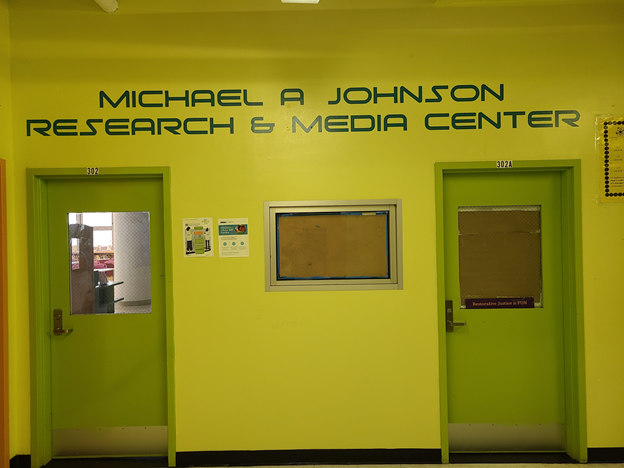Most parents (teachers and principals), may not have been exposed to a doctoral level research methodology course. Which is why we must all be very careful not to make parental and professional decisions about educating children on every piece of research (peer-reviewed or not) that comes out. The other problem is that popular magazines, TV-radio shows and newspapers often ‘summarize’ the conclusions of research studies either incorrectly or incompletely. Sometimes even making claims that the researchers themselves have not made! And of course there is no ‘peer review’ process as to the validity and methodology of these studies that is performed by these reporters and commentators working for various media outlets. They are really going for that “important sexy” conclusion the study supposedly asserts, no matter how impotent the research methodology and/or conclusions that are being affirmed.
I read the abstract and briefly scanned this study, sent to me by a colleague, and reported in Inc. Magazine; the source, thus the motivation, also always matters:
“19-Year Study Reveals Kindergarten Students With These 2 Skills Are Twice as Likely to Obtain a College Degree (And They Have Nothing to Do With Reading)”… https://www.inc.com/amy-morin/kindergarteners-with-these-two-skills-are-twice-as-likely-to-get-a-college-degree-according-to-a-19-year-study.html?utm_content=buffer08aa1&utm_medium=social&utm_source=twitter.com&utm_campaign=buffer
I plan a little later to sit and read the study in its entirety. But some methodological and theoretical ‘red flags’ immediately jumped out. For example the ‘front end’ data collection relies solely on ‘teacher observation-perception’. But teacher observations and perceptions don’t occur in some objective cultural vacuum. All teachers bring an idea of a ‘model student’ with them into the classroom, and very often that model is the teacher themselves, and/or the affirmation, some form of modification, or outright rejection of their own family-cultural upbringing! Student behavior is often in the eyes of the beholder. For when does ‘self-assuredness’ and ‘self-confidence’, as defined for little White girls; become seen and interpreted as ‘sassy’, ‘acting grown’ and ‘confrontational’, for little Black and Latino girls?
Being ‘compliant’, listening ‘passively’, or for that matter actively-dramatically participating, asking questions, and/or ‘sitting still’ during kindergarten reading time; may in fact reflect the child’s pre-school experience with parental ‘reading to them’ style, or no parental reading to them activities. And so, the format, or absence of the same, of home based pre-school reading activities, I maintain is a critical factor in how the child ‘shows up’ (looks like) to the kindergarten teacher.
A Further technical research problem with the study is that the child would be exposed to perhaps 10-20+ teachers by the time that student becomes a college ready, or not ready senior in high school. And we do know from other studies that children being exposed to two or more consecutive incompetent and/or ineffective teachers in a row; or being in a school setting where they have a competent and effective teacher (i.e. 4th grade) in between two incompetent-ineffective teachers (i.e. 3rd and 5th grades); could in fact be a greater determiner of that child’s college chances, regardless of the ‘behaviors’ they exhibit in the early childhood educational classroom setting.
How many of us as superintendents have visited a school and watched the joy and excitement; particularly in the body language and facial expressions of Black and Latino boys in Kindergarten, only to see those same students look lost, miserable and unhappy when they reach the 1st , 2nd or 3rd grades. In other words what variables are in play between Kindergarten, upper elementary, middle and high school 12th grades that determines a child’s academic options and path? And again, I suggest that a critical factor is reading skills. On a positive teacher note the study also does not measure or account for the Efficacious Quality* of all of the post kindergarten teachers that a child may encounter on their way to the 12th grade!
Finally, and granted I still must read the entire study, the researchers in my view don’t prove that being read to, reading, loving to read and loving books are totally disconnected from the child’s building of their conceptual understanding of the world; the behavioral skills they exhibit once in the Pre-K to Kindergarten setting, and/or the quantitative and qualitative level of their linguistic-vocabulary skills. And these linguistic-vocabulary skills are (according to Vygotsky, and I believe him!) inextricably linked to the child’s thinking and reasoning skills; as well as their moral-ethical decision making skills (Piaget). The young pre-school child who is exposed to book stories, over and over again because they like the book, and then request that the parent read it every evening, and often again in the same evening. These message rich stories that teach values like ‘stick-to-itness’, determination and perseverance, i.e. “I Can’t Said The Ant” or “The Little Engine That Could”; could very well mean that the child is absorbing these values, and incorporating them into their out of the home social setting decision making process.
I could say a lot more, like a standard and proscribe psychological developmental stage does not automatically kick-in on the child’s first day of kindergarten, but I will stop here. But my humble advice to parents is that by all means keep reading to your young pre-school child, and continue to engage and encourage your child (from the cradle to high school) to fall in love with books and reading; until some study (and this one does not seem to be it) comes along to dismiss that approach as the best way of creating an environment where the child will be academically successful when they attend any school.
*The Efficacious Quality in teachers: A belief and skill whereas the teacher essentially ‘takes matters into their own hands’ (capabilities); and does everything in their power to correct academic deficiencies, and past mistakes and misses by their colleagues who taught the child before them; all in a determined effort to make the child academically successful.
